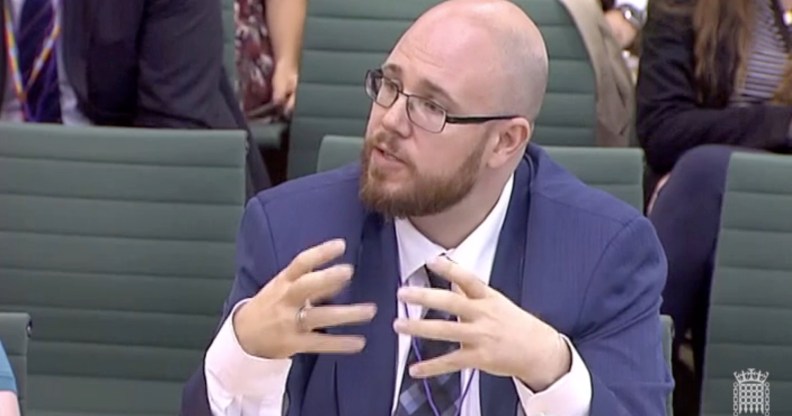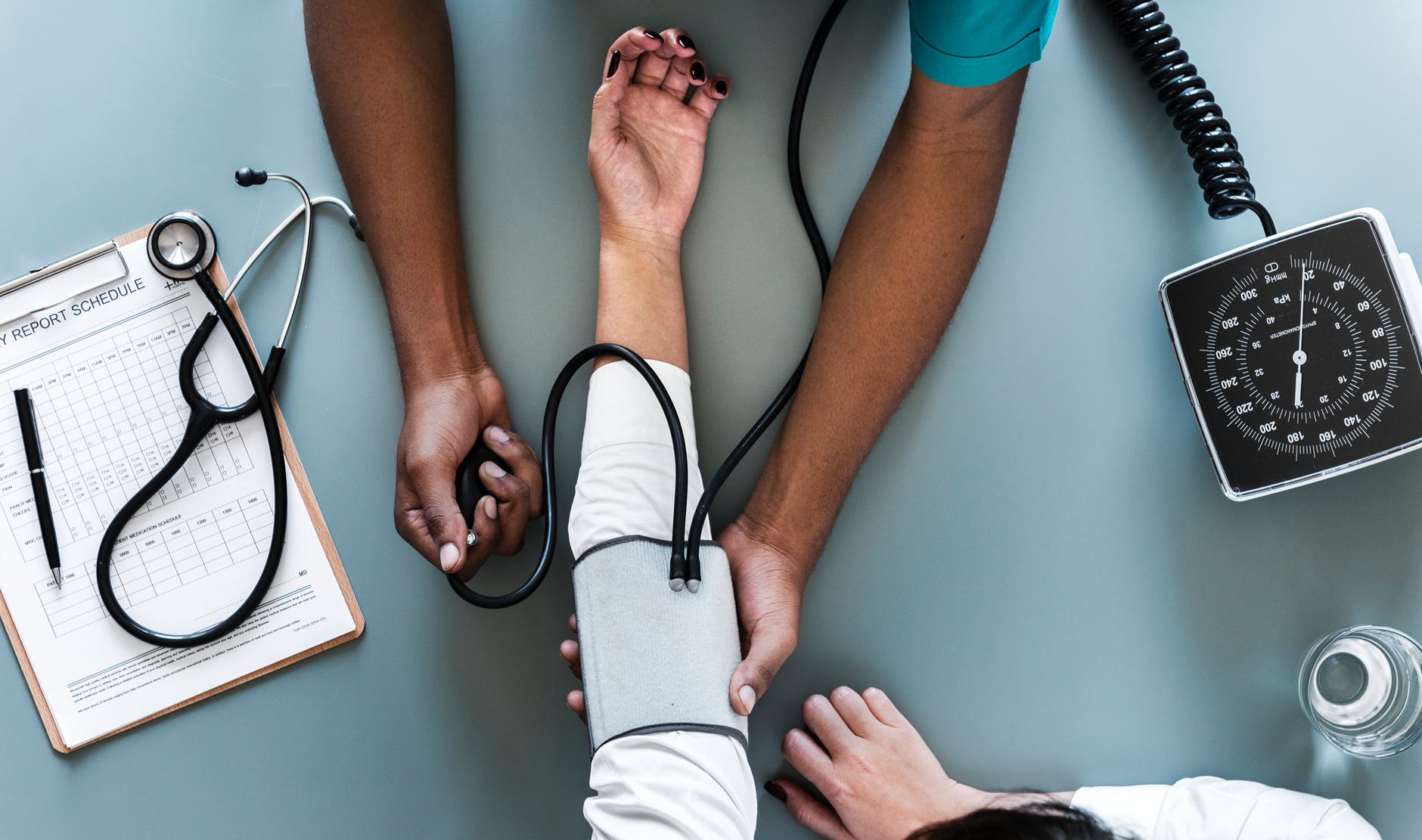UK healthcare is ‘absolutely prejudiced’ against LGBT people, says public health boss

Dr Justin Varney, Director of Public Health for Birmingham City Council (parliamentlive.tv)
A leading advisor on public health in the UK has spoken to a parliamentary committee about the severe inequalities in healthcare for LGBT+ people.
Dr Justin Varney is Director of Public Health for Birmingham City Council, and one of the most senior out gay men working in UK public healthcare.
Speaking to the Women and Equalities Committee on Wednesday (July 3), Varney and Harri Weeks—Stakeholder Engagement Manager for the LGB&T Partnership—identified several “fundamental problems” in LGBT+ healthcare, which largely stem from lack of funding and reporting, improper training and ingrained prejudice.
LGBT+ health inequalities are still largely considered as being about mental health and sexual health.
Varney said LGBT+ people are at greater risk of poor health than the straight population as they tend to smoke and drink more; they are also have a higher risk of mental health problems and face widespread discrimination in healthcare settings.
“LGBT+ health inequalities are still largely considered as being about mental health and sexual health, and [even] then only really being about depression, suicide, and HIV,” Weeks said.
Varney was asked if the reason that the NHS does not prioritise LGBT+ healthcare was down to prejudice. He responded: “Absolutely.”

The discussion with the Women and Equalities Committee (parliamentlive.tv)
Lesbian and bisexual women are “invisible” in healthcare
Varney said that lesbian and bisexual women’s health in particular is “invisible” in the UK discourse.
“It’s because of the societal perception that lesbian and bisexual women don’t have children, and they don’t support men at work,” he explained.
“So when you try and find the cost of lesbian women being unwell, given that statistically they’ve been shown to be lower income earners and not necessarily in the same positions of power or authority, the cost to the system is relatively low.”
He concluded: “It’s hard to prioritise people if they’re invisible in terms of the cost they’re creating for the system.”
Transgender health is also being overlooked, because, Weeks said, “there is a fear within NHS comms teams that if information is being put out about the work that’s being done, the growing anti-trans sentiment in the country will mean that there will be a push-back.”
LGBT+ health programmes are often developed without consulting LGBT+ people
Weeks raised the difficulties in developing LGBT-inclusive healthcare programmes because “LGBT+ input comes as more of an afterthought, so structurally [they aren’t] actually designed for LGBT+ people.”
They urged for LGBT+ people to be involved earlier in the planning process rather than being “shoe-horned in.”

There is insufficient reporting in LGBT+ healthcare, experts claim
In addition to this fundamental flaw, Varney explained that there is no routine data collection on LGBT+ people within the health system, which means NHS bosses don’t understand the problems they’re dealing with.
“The fundamental problem is: ‘If you don’t count me, I don’t count,'” he said. “To say, ‘Is the service improving its support for LGBT people?’ is impossible, because the data doesn’t exist.”
Government pledge is “a drop in the ocean”
The panel drew comparisons with the NHS’s previous focus on health inequalities within the BAME community, which was met with success. Weeks responded that although commitments to LGBT+ healthcare were made in 2016, these have now been “lost to the mists of time.”
The government has since pledged £1 million until 2020 to tackle health inequalities in LGBT+ communities, but Weeks and Varney feel this isn’t going far enough.
Weeks pointed out that the Health and Wellbeing Alliance has not received any of its promised funding this year, meaning Weeks has not been paid since April.
“[This] points to a lack of recognition in how the system works,” they said. “What might feel like a very small amount of funding to the system is a much larger amount of funding to the organisations involved.”
Varney called the £1 million pledge “a drop in the ocean,” adding that a single funding pot would not solve anything because the issues have many causes, including education, employment, and discrimination in society.
Speaking of his difficulties in raising these systemic issues, Varney said: “There is still [a] significant challenge within the system, and unfortunately… if you are the LGBT person who has an ability within their role to move this agenda on, you’re often pigeon-holed as, ‘Well you would do that because you’re LGBT.’”

